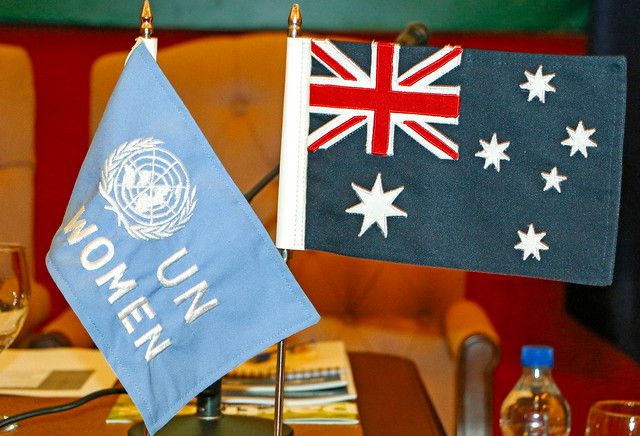Women’s participation and leadership - a game changer to current political paradigms
Date:
Author: Faria Salman
Islamabad, Pakistan – Women must have an equal voice in decisions about how to achieve prosperity and growth, about public service provision and policies that affect their lives. It is not only essential to the legitimacy of democratic systems, but also to good governance.
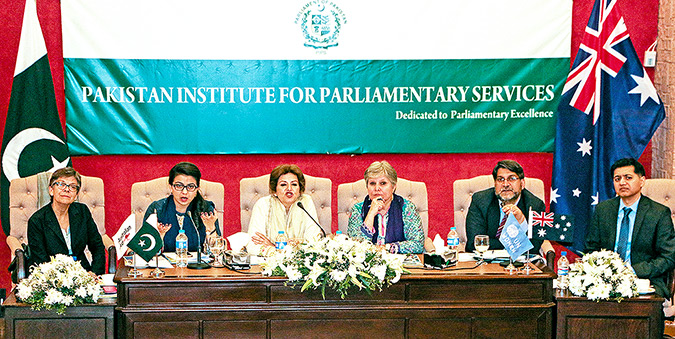
Pakistan has made advances in women’s political participation. Currently, women make up just over 20 per cent of Pakistan’s National Assembly, a higher proportion than many developed countries including the United States and Japan. Among the eight members of the South Asian Association for Regional Cooperation, Pakistan is third behind Nepal (29.5 per cent) and Afghanistan (27.7 per cent). Pakistan has had a female Prime Minister, a female speaker of the National Assembly, and currently has four female speakers or deputy speakers in the Provincial Assemblies of Balochistan, Khyber Pakhtunkhwa, Sindh, and Pakistan-Administered Kashmir.
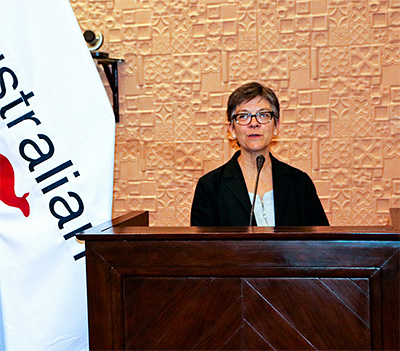
Pakistan’s Inter-Agency Gender and Development Group (INGAD) under the co-chairship of the Australian High Commission and UN Women (United Nations Entity for Gender Equality and the Empowerment of Women), brought together a number of influential Pakistani women and men to discuss challenges and opportunities for women’s political leadership and empowerment in the country.
The panel discussion, ‘Women’s Leadership, Voice and Political Participation’ held on 21 April 2016 at the Pakistan Institute of Parliamentary Services in Islamabad focused on women’s political empowerment issues and challenges (for women’s leadership) and explored opportunities for reform, advocacy and engagement. Influential panelists included Shaista Pervez Malik (Member of the National Assembly and Secretary-General of the National Women’s Parliamentary Caucus), Bushra Gohar (Member of the National Assembly and women’s rights activist), Shaza Khwaja (Member of the National Assembly and Secretary-General of the Young Parliamentarians Forum Pakistan) and Rashid Mafzool Zaka (Executive Director of Pakistan Institute of Parliamentary Services).
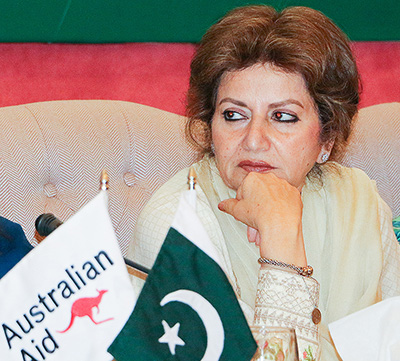
During the discussion, Shaista Pervaiz Malik expressed that progress to enhance women’s leadership, voice and political participation has been slow and should be accelerated. There also needs to be a mindset change among many of the male parliamentarians to be even more supportive and see women’s issues as a collective interest. Speaking on the role of the Women’s Parliamentary Caucus, she said the Caucuses will continue to raise issues and push for legislation to realize and protect women’s rights. An important issue raised that hinders women’s political participation was the lack of election campaign financing, and for elected women, they lack access to development funds.
Bushra Gohar spoke of the uphill struggle faced by women including their representation in decision-making positions and of the many obstacles they have to overcome. There is a need for more women in Parliament to be chairing the Standing Committees which take decisions on finance, planning and budgets. Women are waiting for men to give them space, and party tickets are not based on merit but on the preferences of the party leadership. Speaking of the ‘Women’s Wings’, she highlighted that such mechanisms tend to box women and hinder their inclusion in political debates and progression to leadership roles.
Shaza Khwaja cited the recent Global Gender Gap Report for Pakistan and the gender equality scorecard, which ranked Pakistan at the bottom-end of the table, and called for the attention of all stakeholders. Legislation is important but so is mainstreaming of gender into other development processes (such as gender responsive budgeting). She highlighted that the misinterpretation of religious scriptures by some men is inappropriately used to hinder progressive policies and laws that protect women’s rights. She also spoke of promoting women to compete on general seats and not reserved seats, which are more tokenistic.
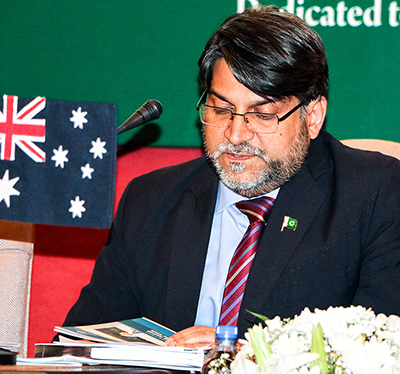
Rashid Mafzool Zaka pointed out a need to enhance the role of the National Commission on the Status of Women beyond oversight and towards implementation, and appreciated the role of the Women’s Parliamentary Caucuses in the Assemblies in introducing women friendly legislation.
Margaret Adamson, High Commissioner of Australia to Pakistan said that gender equality and women’s empowerment were pivotal to Australia’s foreign policy, global economic diplomacy, and international development assistance as articulated in the Australian Department of Foreign Affairs and Trade Gender Equality and Women’s Empowerment Strategy. “Pakistan has outlined its vision for women’s empowerment in the strategic Vision 2025, and the recent Women’s protection bill has been a recent manifestation of this national commitment. Our two governments recognise that gender equality is not only a basic human right, but is fundamental for a peaceful, prosperous, inclusive and sustainable world,” she said.
Other recommendations made at the forum:
- Take action to address the disenfranchisement of women in electoral and political processes
- Introduce legislation to declare elections null and void in constituencies where the turnout of women voters is less than 10 per cent
- Amend the Political Parties and Representation Act to support efforts by women to contest direct elections on both reserved and general seats
- Political parties should ensure that the party tickets they issue for women candidates are for seats that that party has reasonable chances of winning.
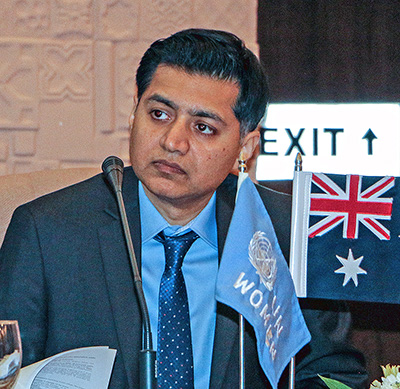
Jamshed Kazi, Country Representative of UN Women Pakistan reiterated that a couple of years ago, UN Women, together with UNDP and the Women’s Parliamentary Caucus and with the support of Australia and the EU held a series of useful policy seminars on women’s empowerment in politics.
“As we begin to approach the elections of 2018, we hope that today’s deliberations and suggestions can take the conversation to the next level so that we can collectively step it up to accelerate the pace of change for women’s political empowerment. We will have to deviate from business as usual if we are to succeed in achieving the globally agreed goal of gender equality- what we in UN Women call a “Planet 50:50 by 2030,” Mr. Kazi said.
Photo Gallery
Background Information
INGAD is a group of donors and multilateral agencies who have been working to promote gender equality in the development and humanitarian sectors and interagency coordination in Pakistan since 1985. INGAD is chaired by different donors and UN agencies on a biannual rotational basis. The event also marked Australia’s tenure as rotating co-chair of INGAD for the six months to August 2016 in partnership with UN Women (a permanent co-chair).
For more information:
Please contact: Faria Salman
Strategic Management and Partnerships Officer & Communications Focal Point for UN Women Pakistan
Email: [ Click to reveal ]
